Drama Schools Uncovered: Prestigious UK Institutions Are Breeding Grounds For Sexual Harassment & Racism
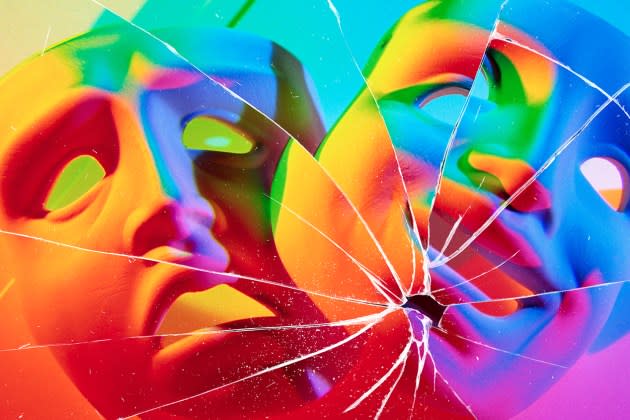
EXCLUSIVE: Britain’s most revered drama schools have been hit with nearly 100 complaints about sexual harassment, discrimination, and bullying over the past three years, a Deadline investigation can reveal.
As part of a special series of stories, Deadline’s “Drama Schools Uncovered” will detail how prestigious performing arts institutions face searching questions about their culture and practices despite claiming they have “zero tolerance” for anything that threatens student safety.
More from Deadline
The UK boasts an ecosystem of world-class drama schools, with the Royal Academy of Dramatic Art (RADA) among those catapulting stars of stage and screen to glittering careers. But figures obtained by Deadline provide evidence that some students are being put in danger in pursuit of their dreams.
For the first time, this publication has collected data from 11 public institutions through Freedom of Information Act requests, providing the clearest picture yet of inappropriate behavior and discrimination at renowned performing arts schools.
Of the schools questioned, there have been at least 27 formal sexual harassment complaints since 2020, 15 of which were upheld in some form. A minimum of 25 racism complaints were made, 12 of which were deemed to be credible. The drama schools recorded at least 27 bullying cases since 2020, seven of which were upheld. Eighteen gender and disability discrimination grievances also existed.
Deadline can reveal that at least three complaints were reported to the police by students, meaning there could be criminal proceedings in addition to the drama schools’ own investigations. Other findings include:
The Royal Central School of Speech and Drama, which boasts alumni including Judi Dench, had the joint-highest number of sexual harassment cases. Six complaints were made to the school, four of which were upheld.
RADA’s seven racism complaints were higher than any other institution questioned. The school, which counts Kenneth Branagh as its president, partially upheld just one of these complaints.
The Guildhall School of Music & Drama upheld two racism complaints in the same year that it apologized to I May Destroy You creator Michaela Coel after she was called the N-word by a teacher.
East 15 Acting School, where After Life star Diane Morgan studied, had the highest number of bullying cases, with nine complaints made over a three-year period.
Deadline has spoken to dozens of current and former students, teachers, and industry observers to illuminate the data disclosed by drama schools. Many spoke on the condition of anonymity for fear of damaging their careers, but some went on the record to recall troubling experiences from their time in higher education. We will be bringing you some of these stories over the coming days and weeks.
Over the course of these conversations, female graduates alleged that they were sexually propositioned by lecturers. One Black graduate said he was asked to paint his face white for a musical. Alumni recalled being pressured to relive past trauma through performance, including a woman who claimed she was required to play a domestic violence victim after being in an abusive relationship.
They spoke of systemic issues within schools, describing an environment in which students are in thrall to influential teachers and permissive cultures empower predators. Many recalled their troubling experiences of “trauma porn,” a pejorative description of a well-established teaching technique designed to draw authentic performances out of students by encouraging them to reflect on disturbing events from their lives.
Ciara Charteris, the Poldark actress who now works as an entertainment industry wellbeing advocate, said: “Your classic drama school mottos are: ‘We break you down to build you back up’ and ‘always say yes.’ My experience [at Royal Welsh College of Music & Drama] was that it was an environment that not only hurt people, but created monsters.”

Drama schools told Deadline that student welfare is their highest priority and that disciplinary action is taken when tutors or pupils behave inappropriately. Most pointed to recent improvements in diversity and inclusion, complaints procedures, and student welfare support, but some schools admitted that there is still work to be done. Not one of the institutions approached for comment agreed to an interview. Click here to read the drama schools’ full responses to our findings.
Some graduates and experts acknowledged that performing arts organizations have made improvements in recent years, but the vast majority of people said schools lacked specialist regulation, meaning they have not fully confronted lingering safeguarding issues. The majority of top schools are overseen by the Office for Students, which is currently seeking powers to police sexual harassment in higher education bodies.
John Blake, a director at the Office for Students, told us that harassment and sexual misconduct can have a “profound” impact on students. The plan to introduce regulation is “driven by evidence that higher education providers have not adequately dealt with these challenges,” he added.
The Federation of Drama Schools (FDS), a membership group that has developed “shared principles” for 18 of the biggest schools in the country, has faced criticism for its lack of leadership on student safety, but said it is not a regulator. “All partner schools have institutional policies, regulations and processes to provide students with a high-quality learning experience and environment,” it said. “The FDS remains committed, within the scope of its remit, to evolving and sharing good practice.”
Stars Left “Shellshocked”
Deadline’s investigation comes against the backdrop of high-profile actors speaking out about their experiences at drama school. Daisy May Cooper, a BAFTA-winning RADA graduate, said students were encouraged to relive experiences of rape or miscarriages without any aftercare. RADA said it no longer tolerates the teaching practices she described.
Gangs Of London star Paapa Essiedu was left “shellshocked” after he and Coel were called the N-word at Guildhall. The school apologized to both actors and undertook an anti-racism program. Commenting on the two further racism complaints upheld last year, Guildhall told Deadline: “We understand that this work is long-term and requires sustained commitment to build a culture that is inclusive and equitable.”
Schools have faced public reckonings over their cultures. During the Black Lives Matter movement in 2020, RADA and Royal Central were just two schools that admitted to institutional racism. ArtsEd, which boasts Andrew Lloyd Webber as its president, was found to have an “overly sexualized environment” in an excoriating 2021 barrister-led review. Royal Welsh is awaiting the outcome of legal action brought by two ex-students, who say that their complaints about a predatory male student were dealt with “appallingly” by the school once attended by Anthony Hopkins.
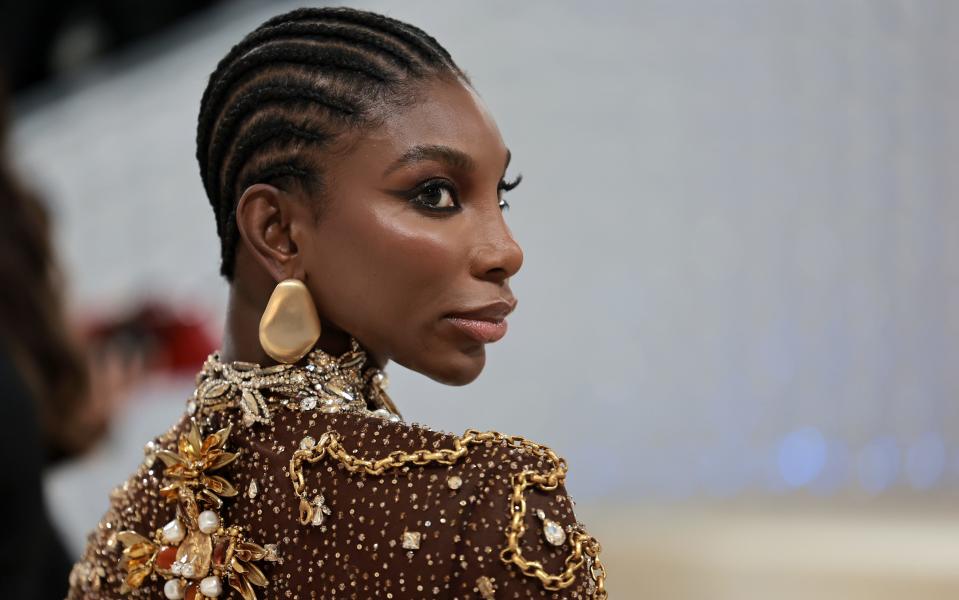
These institutions occupy a unique place in the UK’s higher education system, taking in thousands of ambitious young adults dreaming of making it big in an industry where few succeed. Impressionable students are encouraged to explore the limits of their capabilities and vulnerabilities in a highly competitive environment.
Most are desperate to impress their supervisors, who theoretically have the power to make or break fledging careers with the flick of a pen. These teachers can cast pupils in lead roles in graded performances. They are seen as the gatekeepers to agents, casting directors, and auditions.
“If you want to make it in this industry, you don’t want to make an enemy of me,” was how one graduate characterized the approach of some teachers.
Alexa Morden, a Manchester School of Theatre graduate who has appeared in TV shows including Skins, added: “The hierarchy within this business and culture of silence is what allows for this to happen because people believe that if they say anything, their career will be ruined.”
Several people spoke of blurred boundaries between students and teachers, in which young people are encouraged to socialize with their elders in the pursuit of better grades and industry access. Those who do not play the game risk being frozen out.
These elements combine to create conditions for misconduct and abuse of power, people said. They can also empower students to transgress social boundaries, meaning complaints to drama schools reflect some undergraduates raising concerns about their own classmates.
Complaints Are “Tip of the Iceberg”
Our figures show that students felt strongly enough to lodge at least 97 complaints about misconduct and discrimination, which is often a last resort for those affected. Anna Bull, a University of York academic who specializes in researching sexual misconduct in higher education, said students who make reports are desperate to avoid failing their degree or want to prevent others from suffering harm.
“These complaints need to be seen as the tip of the iceberg,” said Bull, who is co-director of The 1752 Group, an anti-harassment campaign organization. “It’s pretty amazing that this number of people, across all of these complaints, have actually gone through with it. There will be thousands of others who have experienced sexual harassment and discrimination [and not complained].”
London’s Royal Central and the Royal Conservatoire of Scotland, once home to stars including Ncuti Gatwa and James McAvoy, both fielded at least six sexual harassment complaints, with the former upholding four and the latter a minimum of six. Royal Central, which counts Netflix UK chief Anne Mensah as its vice president and former diversity committee chair, upheld the two racism complaints it received over the past three years.
Royal Central said it has worked closely with students, staff, and alumni to “strengthen accountability,” but acknowledged that “there will always be more to achieve.” It said complaints are taken seriously, with efforts made to ensure procedures are accessible and policies are “clear, effective and robust.”
Shaniqua Okwok, a 2018 Royal Central graduate who went on to star in Steve McQueen series Small Axe, spoke out about racism at the school in 2020 after being called a “slave” during class. She claimed that changes made by the institution were the equivalent of “throwing a blanket over a fire” because students were still being exposed to discrimination.
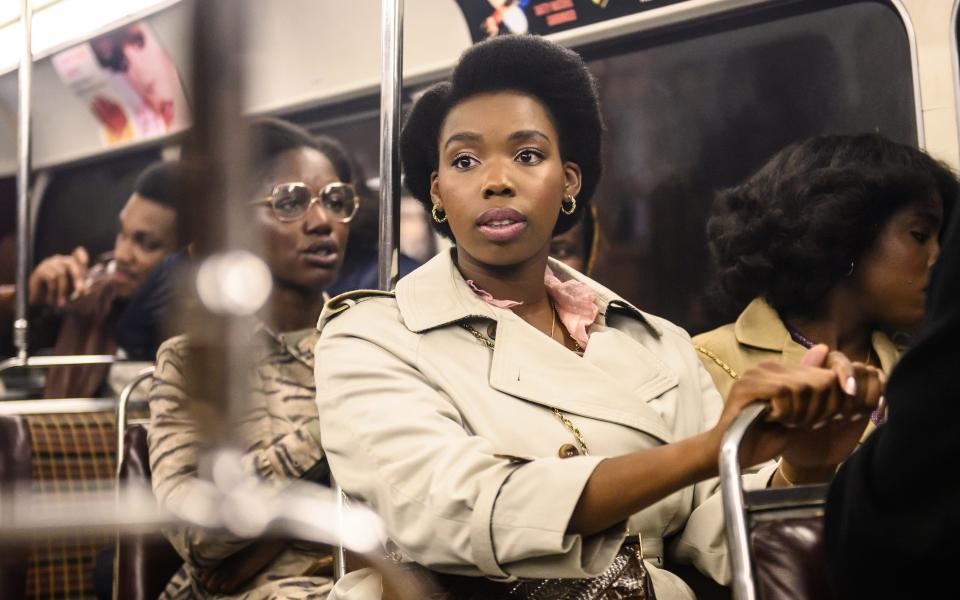
The Royal Conservatoire of Scotland, an arts institute that is double the size of most drama schools, said it introduced a “sector-leading” disciplinary resolution process in 2021, which is helping students “call out rather than accept” inappropriate behavior. It said most complaints related to matters that took place off campus.
Bull, the sexual harassment researcher, said that the Royal Conservatoire of Scotland’s record of upholding at least six sexual misconduct grievances could be a sign that its procedures are functioning properly. “There is a really high barrier to reporting in the first place. People only usually make formal complaints if the harassment is extreme,” she added.
Students Resign Over Racism
Rose Bruford College, where the likes of Gary Oldman and Stephen Graham learned their craft, deemed three of five sexual harassment complaints to be credible. It also upheld two of three racism cases and one of six bullying claims. The school said it was aware of two complaints that were referred to the Metropolitan Police by students.
Deadline has spoken to one student who recently resigned from her Rose Bruford performing arts course because she felt the school failed to sufficiently protect her from “toxic” conversations about race with classmates. Deena, a pseudonym we are using to protect the student’s identity, also pointed out what she described as inadequacies in the curriculum, including a lack of critical discussion about racism within stage plays. Deena said the experience damaged her mental health.
Rose Bruford said it works with diversity specialists to ensure it has an anti-discriminatory environment. It said students are encouraged to raise their concerns and complaints are dealt with “positively and constructively.”
Other people complained of overt racism during their time at drama school. Maria, a pseudonym for an Arden School of Theatre graduate, said tutors did nothing to protect her when classmates consistently referred to her as “Shaniqua,” which she considered to be a stereotypical name for a Black American woman.
Maria, who graduated before the pandemic, alleged that a tutor drunkenly propositioned her and three friends one evening. She claimed he used words to the effect of: “You Black girls, I’d have the lot of you.”
A second Black graduate from Arden claimed that he was asked to paint his face white for a performance of musical comedy Oh! What a Lovely War. He said the tutor became “very defensive” when concerns were raised and the idea was eventually abandoned.
Arden, where The Flash star Saoirse-Monica Jackson studied, partially upheld one racism complaint in 2020, according to figures obtained by Deadline. “We are committed to being a fully inclusive organization where students and staff of all backgrounds feel safe, respected and valued,” it said.
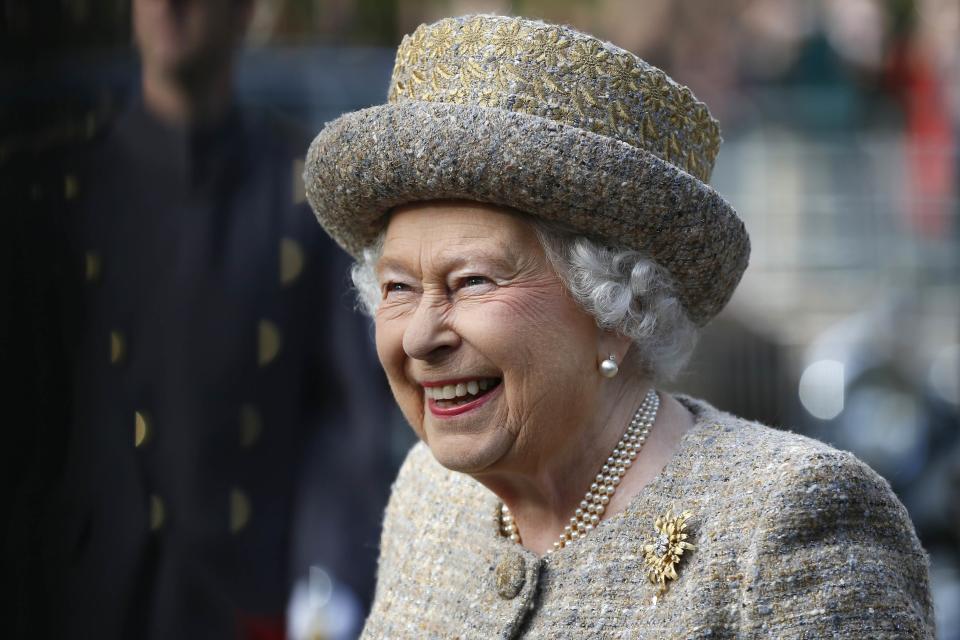
RADA, arguably the most revered drama school in the UK, had the highest number of racism complaints. Marcus Ryder, a prominent media industry diversity campaigner, joined as chair in 2021 and the institution said “systemic change” is a top priority.
“We applaud the work of Deadline in ensuring the issue of racism stays at the forefront of discussions around both the arts and our teaching of them,” a spokesperson said. “At RADA we consider any complaint of racism as one too many, while at the same time, we have ensured that it is easier for students to bring complaints so we can address any underlying issues.”
“Trauma Porn”
Many students spoke of being asked to relive past trauma without sufficient safeguarding. Lucy, a name we are using to protect a graduate of East 15 Acting School, said she was asked to play a domestic violence victim after revealing to her cohort that she had been in an abusive relationship prior to joining the University of Essex-owned drama school.
Lucy claimed a tutor encouraged her classmate to “beat” her. She alleged that the same tutor, who still works at East 15, compared her to a Henri Rousseau painting of a “native Black woman in the jungle” after performing a scene in her underwear. Lucy said she was offered just four counseling sessions during her three-year course.
East 15 had the highest number of bullying cases, upholding one in nine of the complaints it received. The school, which has 700 students, has not recorded any racism complaints since 2020, but did handle three sexual harassment cases, two of which were dismissed. One incident in student accommodation was reported to Essex Police.
The University of Essex said its code of conduct was updated in 2021 with guidelines unique to actor training, including new protocols around consent. “We do not tolerate harassment and bullying of any kind,” it said. “We will always take appropriate action if concerns over behavior are raised.”
Morden, who graduated from the Manchester School of Theatre in 2013 and advocates for actors’ welfare on her podcast The 98%, recalled a “depressive episode” after alleging that she was bullied by a tutor.

“I was witness to a fatal incident during my first year, in which the victim unfortunately died. I tried to resuscitate him and I was the last one there in his final moments. It was deeply traumatic,” she said. “At the end of that year my tutor told me that he hadn’t seen any emotional depth to my work until the incident happened and, if it wasn’t for that, I would not have been able to return for my second year. I was left thinking: the only reason I still have a place at drama school is because someone died and I was a witness to it.”
The Manchester School of Theatre, once home to stars including Steve Coogan and Maxine Peake, recorded a minimum of two bullying complaints over the past three years, neither of which were deemed credible. It dismissed at least two sexual harassment complaints, but upheld or partially upheld three of four racism complaints.
Manchester Metropolitan University, which houses the school, said some allegations related to “events outside of the university.” It added that all complaints are investigated thoroughly and perpetrators are disciplined where necessary.
The Royal Welsh College of Music & Drama, which is the subject of legal action from two former students over sexual misconduct, partially upheld one of the two complaints it received regarding harassment. The other was not resolved because the accused left the school. It also deemed two of three bullying cases to be credible. The school said student safety is its “number one priority” and it has “robust” safeguarding policies.
Lawmakers Demand Change
Lawmakers and industry activists are calling for better standards within drama schools and increased regulation. Caroline Nokes, the MP who chairs UK Parliament’s Women and Equalities Committee, said regulator the Office for Students must make it mandatory for drama schools to tackle sexual violence. “The sexual harassment and abuse of female students in educational settings is a serious concern … few educational establishments are immune from this scourge,” she told Deadline.
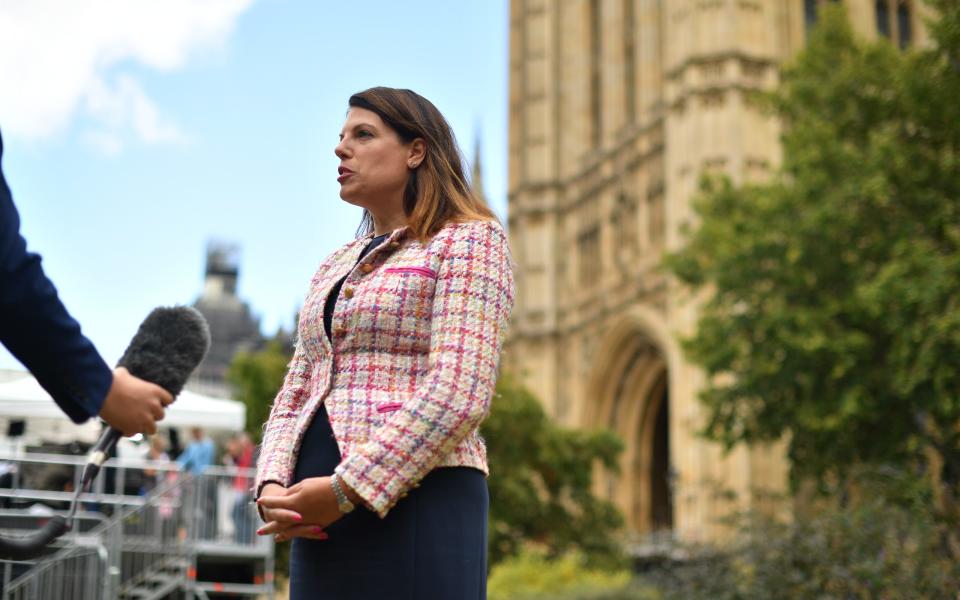
Annemarie Lewis Thomas, the former principal of London’s Musical Theatre Academy and an advocate for student safety, said the government should consider examining more coherent regulation for performing arts schools. “There are lots of loopholes drama schools fall through,” she said. “It should be a national outcry.”
Lewis Thomas called on schools to employ psychotherapists rather than counselors to support students with trauma recall. She added that there must be clearer boundaries between students and tutors, many of whom have grown up in the drama school system and believe its culture to be acceptable.
Charteris, the former actress who launched IntAct Creatives, a hub for wellbeing services in the arts, said safer students will mean better outcomes for schools. “The safer a student feels, the more artistic freedom you’re going to find they have,” she said.
Check back for more in our Drama Schools Uncovered series. If you wish to contact the author of this article to share your drama school experience or supply further information, please email jkanter@deadline.com
Best of Deadline
Sign up for Deadline's Newsletter. For the latest news, follow us on Facebook, Twitter, and Instagram.

